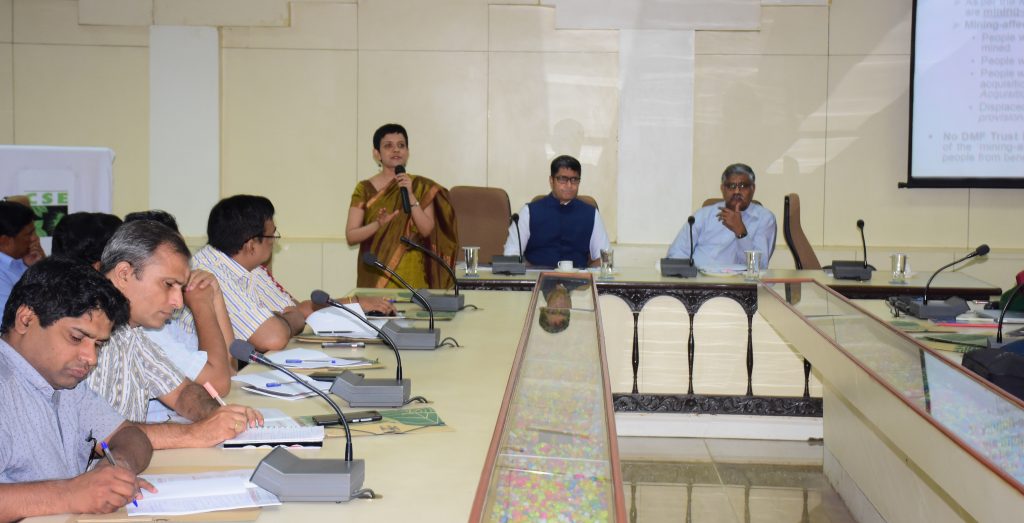MAJOR FINDINGS
- No DMF in any district of Odisha has identified its beneficiaries – mining-affected people
- The DMF body is dominated by district officials and political representatives from mining areas
- With around Rs 5,000 crore in DMF Trusts, there is a huge scope for the mining districts to address some of the pressing issues
- Out of Rs 2,589 crore sanctioned for projects under DMF, around 33% is for building roads and bridges
Bhubaneswar: The District Mineral Foundations (DMF) of the state have failed to benefit mining-affected people due to institutional and administrative gaps, the Centre for Science and Environment (CSE) pointed out in its report ‘People First: District Mineral Foundation (DMF) Status Report, 2018’.
The report covers 12 states and closely studies the DMF administration and investments in five states including Odisha.
The report and its findings about Odisha were discussed at a public meeting in Bhubaneswar Tuesday.
“DMF is a defining opportunity to overturn the injustice meted out to millions living in extreme poverty in India’s mineral bearing districts. The law is also a crucial opportunity to ensure people-centric governance and decision-making. But this can happen only if DMF is implemented in letter and spirit of the Mines and Minerals (Development and Regulation), Amendment Act, 2015 and state rules developed under it. Our assessment shows that Odisha has so far failed to implement DMF in true spirit,” said CSE Deputy Director General Chandra Bhushan.
The Secretary of the Odisha Planning and Convergence department, R Balakrishnan, under which DMF is placed in the state, spoke about the government’s position.
“Odisha is focusing on convergence for DMF implementation as it brings in various departments that are looking into the issues DMF addresses,” he said. There is a DMF nodal person in each line department of the state who is looking into DMF proposals coming from various districts to review feasibility of the projects. The review report is then sent back to districts where the DMF body finally approves the project, he added.
The report said that no DMF in any district of Odisha has identified its beneficiaries (mining-affected people). This is a fundamental obligation of DMF Trusts, as the law clearly defines the mining-affected people who must be identified and helped through DMF, says the CSE report.
These not only involve people who are living in mining-affected areas, but also those who have been displaced and resettled, lost their livelihoods including forest-based livelihoods, and those who had traditional rights over the land.
“By not identifying beneficiaries, DMFs have left out some of the worst-affected people,” the report said.
It also said that there is no scope for representation of mining-affected communities in DMF bodies (the Governing Council and the Managing Committee) in Odisha. The DMF body is dominated by district officials and political representatives from mining areas. The only “people’s representation” comes from the few elected members of Panchayati Raj Institutions (PRI).
With around Rs 5,000 crore in DMF Trusts, there is a huge scope for the mining districts of Odisha to address some of the pressing issues of mining-affected communities. However, this can happen only if DMFs’ investment plans are executed after need-based assessments, says the CSE report.
Of the Rs 2,589 crore sanctioned so far for projects under DMF, around 33 per cent is for building roads and bridges. In fact, investments in such infrastructure have been alarmingly high in some areas like Sundargarh district.
